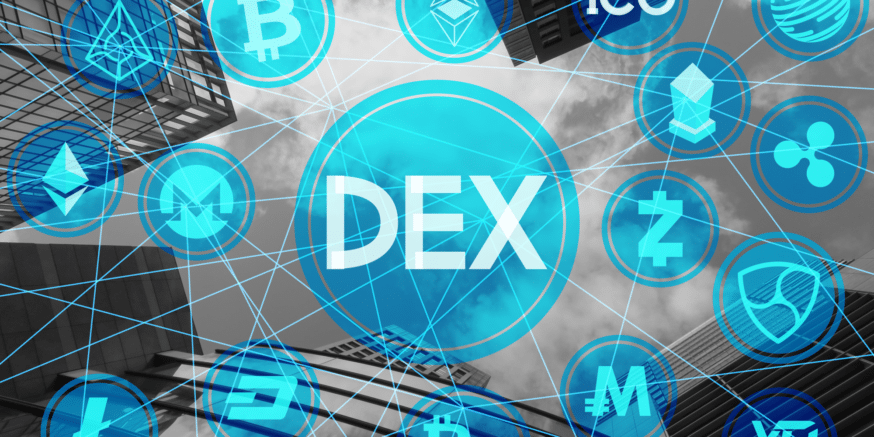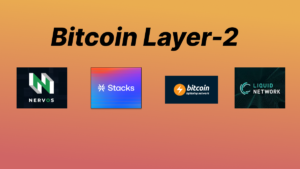
No pun intended; I’m not poking fun at the popular COVID-19 prevention slogan. But if that’s what will make you refrain from centralized exchanges for a while, then I’ll happily do so. My frequency of using centralized exchanges has decreased over twice times the initial. If we can get rid of fake volumes, centralized exchanges are probably rubbing shoulders with decentralized exchanges; in terms of volume, user base, and application.
Despite years of efforts and modifications, fake volumes have continued to bite down on the reputation of centralized exchanges. Aided by exchange officials or solitarily, cryptocurrency projects could easily fake buy and sell orders to lure investors who are attracted by high volumes as proof of demand and liquidity. This could happen anywhere though, but it is more prevalent in centralized exchanges. Centralized exchanges and their technology have served for the time they dominated the space. No doubt, they flourished due to the incredibly handy services they offered. In essence, these services were the best available.
Hacking centralized exchanges is unarguably the most profitable for cryptocurrency scammers. The incidence of exchange hacks lead to the loss of huge amounts of funds. Mt. Gox, Bitfinex, Binance, Kucoin…the list is actually inexhaustive. Getting access to hot wallets of custodial exchanges is a jackpot for hackers who are in a constant attempt to break their way through.
Funds on centralized exchanges are in fact not owned by the ‘owners’. ‘Not your keys, not your coins’. Regardless of how ‘SAFU’ the exchange promises you about the safety of your assets, your cold wallet which you (and only you) hold its private key is the safest place to store your cryptocurrencies. Blockchain technology assures fund security, but this is only when they are truly in your custody, and this is as long as you’re the (only) one with the knowledge of your wallet’s passcodes and private keys.
So, here’s a simple fix; decentralized exchanges…
Unlike the rampant centralized exchanges, decentralized exchanges do not have buy walls and sell walls, yet the exchange of assets is unrestricted. Even a cryptocurrency veteran would wonder how this works exactly. Well, decentralized exchanges are powered by a number of protocols that allow users to swap assets seamlessly without third-party holding custody of their assets before, during, and after the swap.
Decentralized exchanges are powered by Automated Market Maker (AMM) protocols which leverage liquidity pools to ensure a seamless exchange of assets while retaining blockchain-level security.

Automated Market Markers are programmed to be highly organic and responsive. Like a real-time trading system, every bit of supply and demand creates a relative effect. Traders and investors are handed efficient tools for making decisions and projects are represented for what they truly are…at least for that point in time.
Thanks to liquidity pools, AMMs provide a basket of exchangeable assets to enable unrestricted trading for the period in which the liquidity providers wish to leave their assets on the pool. The transparency of the liquidity pool allows traders to make their decisions.
AMM protocol ensures that every buy and sell effect reflects relatively on the asset price. AMMs are not completely resistant to manipulations, this is evident in the rampant rug pulls. But on the brighter side, these actions are transparent; an important feature of blockchain technology.
Albeit certain shortcomings too; here’s how decentralized exchanges keep you safe(r).
Custody of assets
Decentralized exchanges provide ‘blockchain-level’ security by allowing users to exchange their assets without having to give up their private keys. Private keys give everyone complete control over their individual cold wallets. The security of assets in these wallets is only compromised when the wallet owner gives away their private keys. The recipient of this private key assumes ownership of the concerned wallet and assets therein. In centralized exchanges, asset owners are not in possession of their wallets’ private keys; these keys are rather held by the exchange and are in complete control of the assets in their possession.
In cases of exchange scams, or accidental demise of the holder(s) of this key, assets held in these exchanges are completely lost and there are little or no chances of the holders reclaiming their lost funds. This won’t be the case in a proper decentralized exchange as wallets and asset ownership are not compromised in any way, holders retain private keys to their individual wallets and simply connects to the exchange and enable their assets for trading.
Programmed and time-based permissions
Decentralized exchanges require certain permissions to interact with your wallet sufficiently to allow asset swaps, but these permissions are essentially approved by you and last as long as the particular swap is executed. Once a swap is completed, the permission is retrieved. The protocol will need to make another request before regaining this access to execute another transaction. This ensures that you retain control of your assets at any time you’re not interacting with the platform.
In-wallet assets’ resistance to exchange exploitation
Decentralized exchanges run into hazards too. Countless technical exploitation has been reported on certain decentralized exchanges and defi platforms. This is more rampant with DEXes offering other specialized services powered by novel protocols. Flash loan services have been subjects of exploitation and a large number of assets have been lost in the process. However, this doesn’t affect assets in wallets even if the wallets have interacted with the platform. Fraudulent smart contract codes can avail hackers of a sustained connection to personal wallets, but this is a special case. Assets safely stored on wallets are safe, even if the DEX runs into hazards.
In addition to preserving your identity and allowing you to swap assets from the comfort of your (personal) wallets, decentralized exchanges are evolving to keep your assets as safe as possible while you perform core exchange activities. Stay safe; use a DEX
There is no ads to display, Please add some




